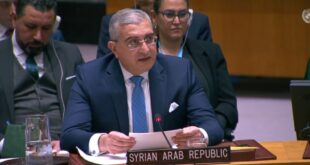Damascus, SANA – Music holds a key place in tangible and intangible heritage of the Syrian cultural identity as Qudud Halabiya which is musical measures of Aleppo city topped the throne of the Syrian music.
This kind of songs has been transported by the singers and players to the cultural international forums.
During these days, Syria is ready to receive the fruits of Qudud Halabiya file , to be inscribed at UNESCO Representative List of the Intangible Cultural Heritage of Humanity after a hard and systematic work have been done since 2018 by the Syrian Trust for Development ,in cooperation with the local community in Aleppo, government institutions and specialists, on top , the late singer Sabah Fakhri, who provided moral and scientific support and participated in part of his career in enriching this file.
Rector of the Higher Institute of Music, Maestro Adnan Fathallah, told SANA that Sheikh Amin al-Jundi , a poet and musician from Homs city , was the first creator of the idea of Qudud and he was considered one of the pillars of the Arab cultural vitality in the eighteenth century , in which he put words on some religious melodies.
Qudud is traditional Syrian songs combining lyrics in Classical Arabic with old religious melodies collected mainly by Aleppine musicians. Their themes are most often love, longing and spirituality.
These traditional songs were not confined to the city of Aleppo, as there are Homsi, Damascene, coastal and others, but the specialists attribute the reason for its association with al-Shahba because Aleppo is a school of authentic singing through the ages.
Haybah Sleman/Shaza Qreima
 Syrian Arab News Agency S A N A
Syrian Arab News Agency S A N A

